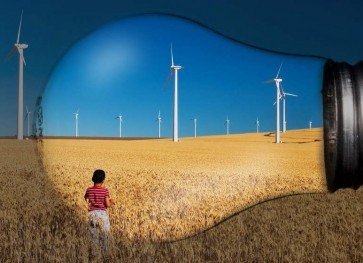BULGARIA IMPORTS 70% OF THE RAW MATERIALS FOR THE ENERGY SECTOR
Bulgaria imports 70% of the raw materials for the energy sector, said Minister of Economy, Energy and Tourism, Traicho Traikov at the meeting of the NATO Parliamentary Assembly near the city of Varna, announced BTA (Bulgarian Telegraph Agency). Earlier this day, he inaugurated the Galateya power transmission line repaired by NEK which left the Sunny Beach resort without electricity supply in 2010.
According to Traikov, our country must diversify its energy supplies, but it is not easy to import raw materials from countries that do not cause any problems. Precisely because of the diversification of the energy sources, currently the construction of new gas connections with Greece, Turkey, Romania and Serbia is underway. Besides, the agreement on possible supplies of American nuclear fuel for Kozloduy NPP is expected to be signed. Options for supply of compressed natural gas from Azerbaijan through Georgia and the Black Sea are also being considered, added the Minister.
According to Traikov, the nuclear energy projects could play an important role in the energy strategy of our country. It is essential uniform EU safety standards to be introduced both for the EU member states and for the countries bordering the EU.
Currently, 55% of Bulgaria's electricity is generated by thermal power plants (TPPs), while 35% is produced by NPPs and the remainder is green energy, generated by the largest hydropower plants (HPPs) in Bulgaria. According to the Minister, in 2020 the wind farms will generate 7% of the electricity in our country, HPPs will produce 9%, whereas the rest 3% will be yielded from biomass processing and the solar energy output will constitute only one percent.
A day earlier, Traikov stated that it was highly likely a new contract for the construction of Belene NPP to be prepared. The analyses of the financial consultant on the project, the British bank HSBC, indicated that the final construction contract should not refer to a plant, operating according to market principles. This will be a contract signed between two countries with secured funding and it is clear that there will be some investment, explained Traikov. He added that it was unrealistic to expect a final agreement to be concluded with the Russian AtomStroyExport for the Belene NPP construction at the beginning of June.
Regarding the intention of the US Westinghouse Electric Company to supply a fresh nuclear fuel for our Kozloduy NPP, Traikov explained that the Bulgarian State would help the company to license its fuel at the Bulgarian Nuclear Regulatory Agency. This will authorise the company to bid in future tenders for the fuel supply for Kozloduy NPP. In his words, in Ukraine in view of the price competition with the US fuel, the cost of the Russian raw materials for reactors' operation dropped three times.
In the coming days, a deal over the stakes in Gorna Arda hydropower cascade is expected to be signed between EVN and the Turkish company which is the successor of Ceylan Holding. Thus, the Austrian firm will officially enter the Management Board of the company. The already negotiated statute of the company stipulates that EVN will receive a 70% share in the cascade, while NEK will hold the remaining 30%. The project is expected to have two times greater capacity than Tsankov Kamak Hydro Power Station and two times lower value.






